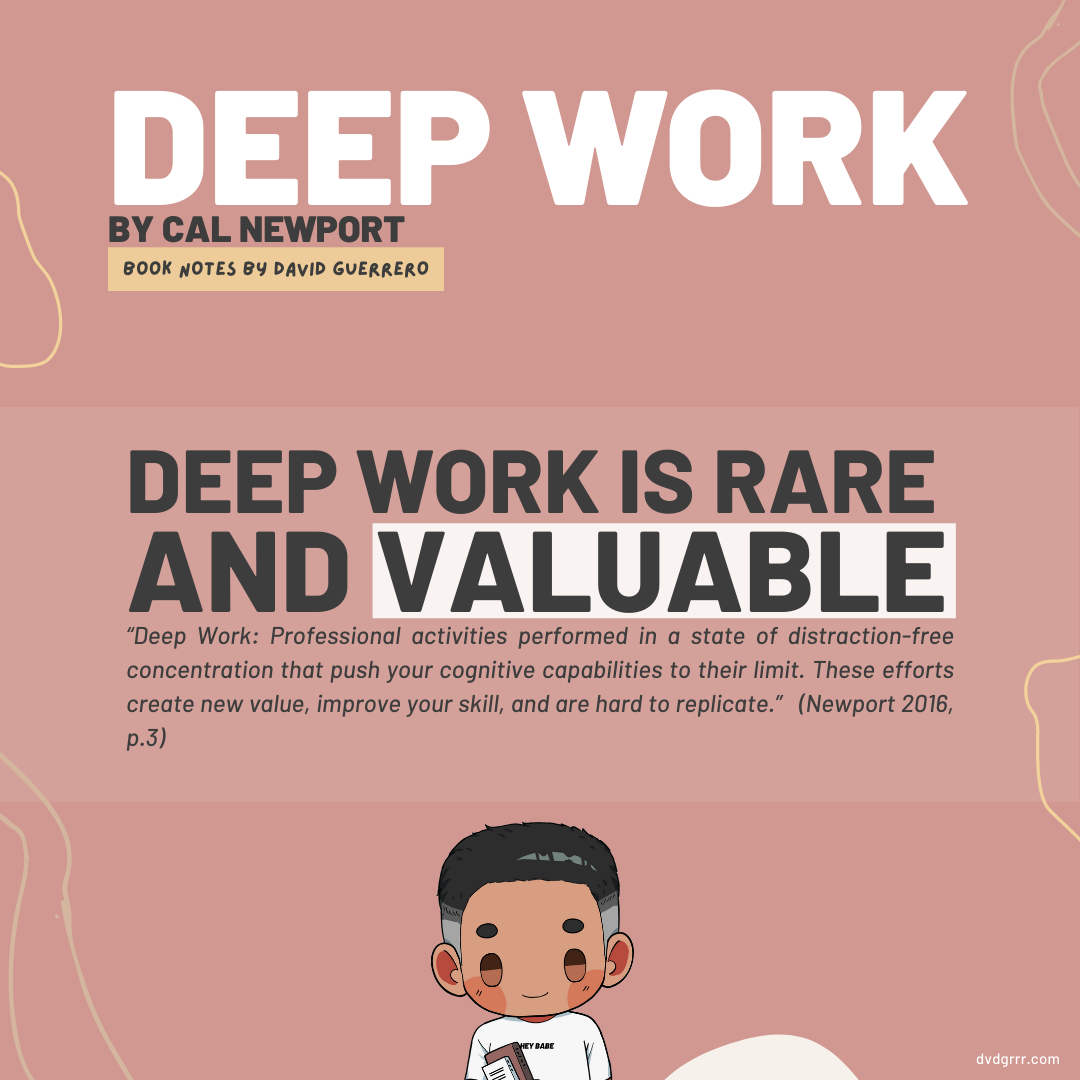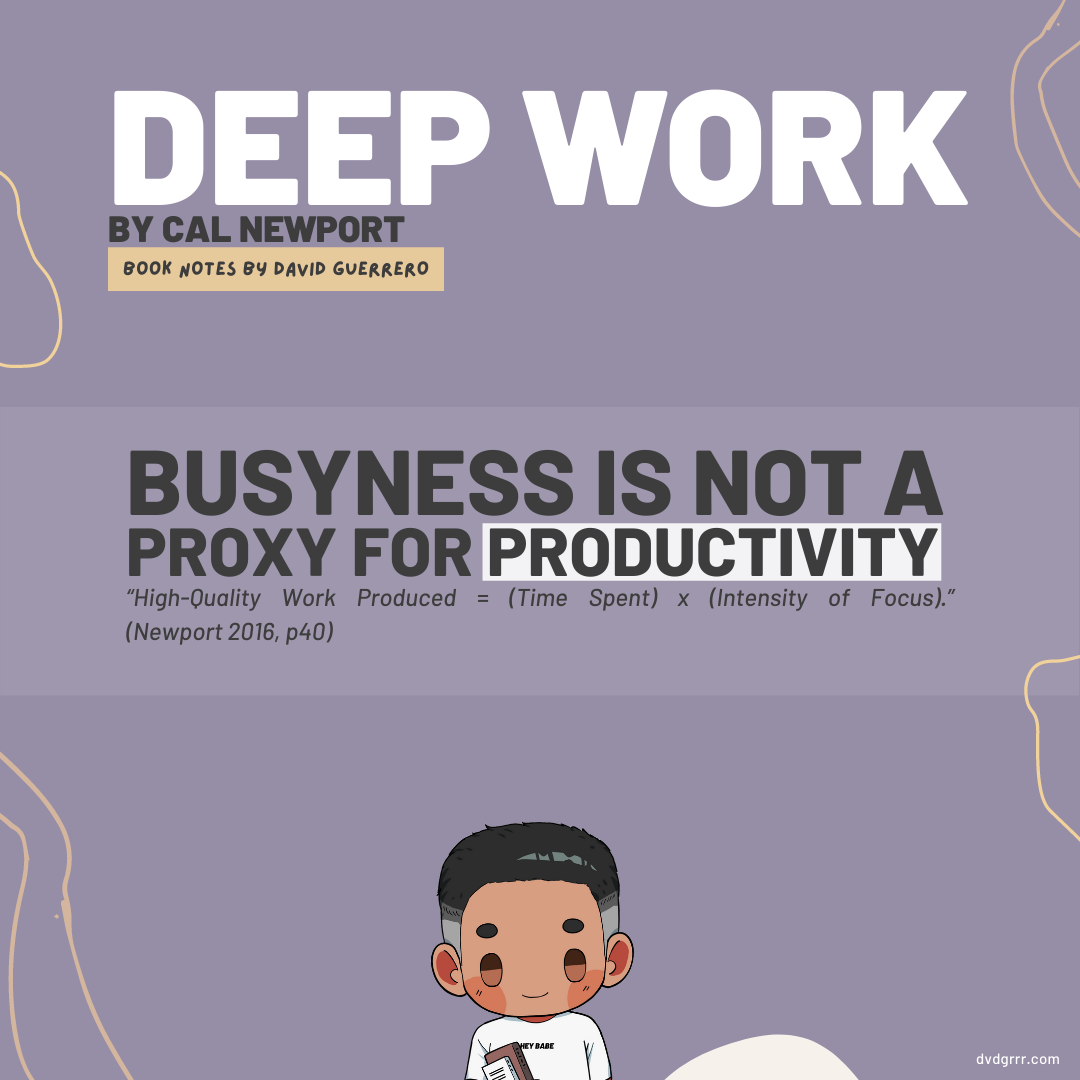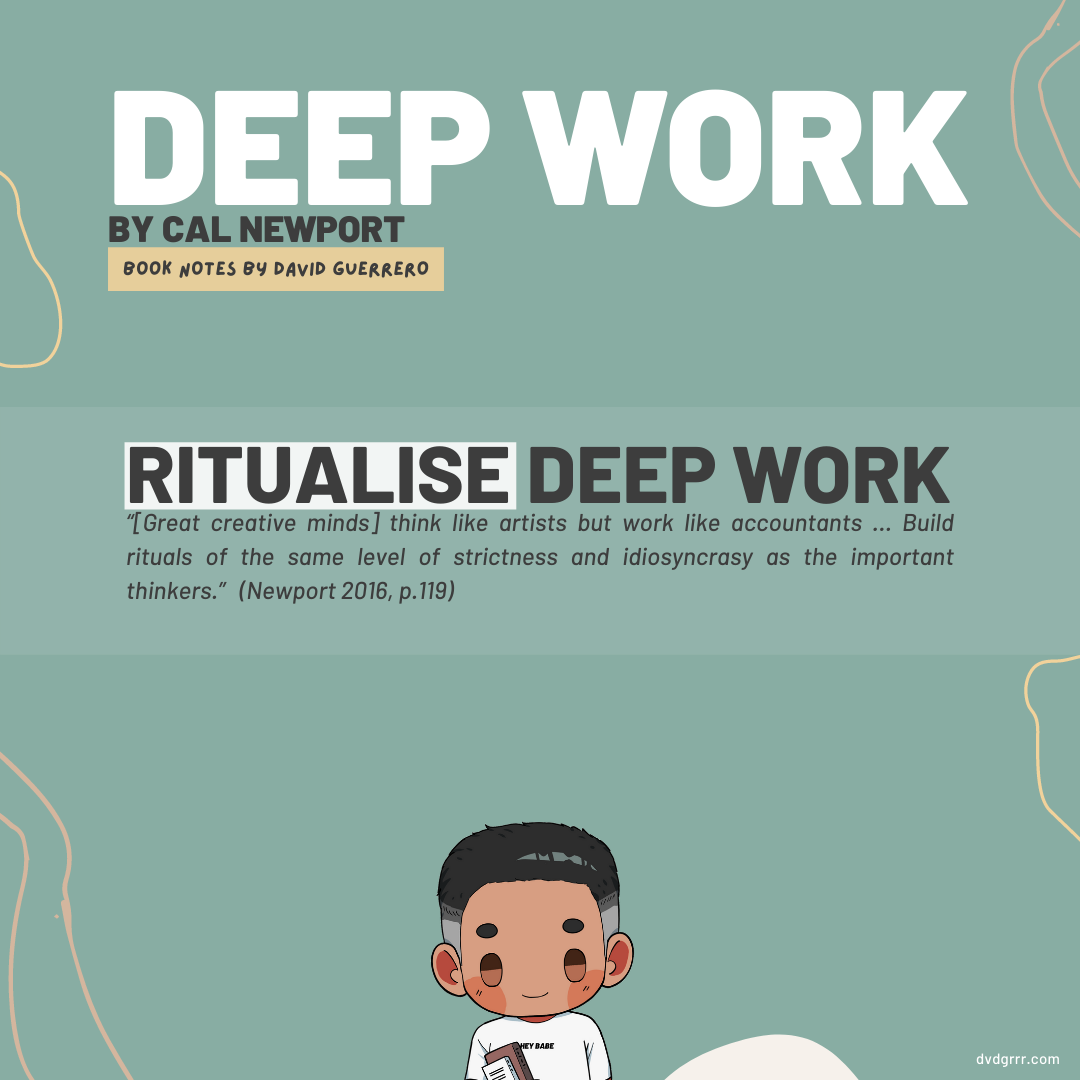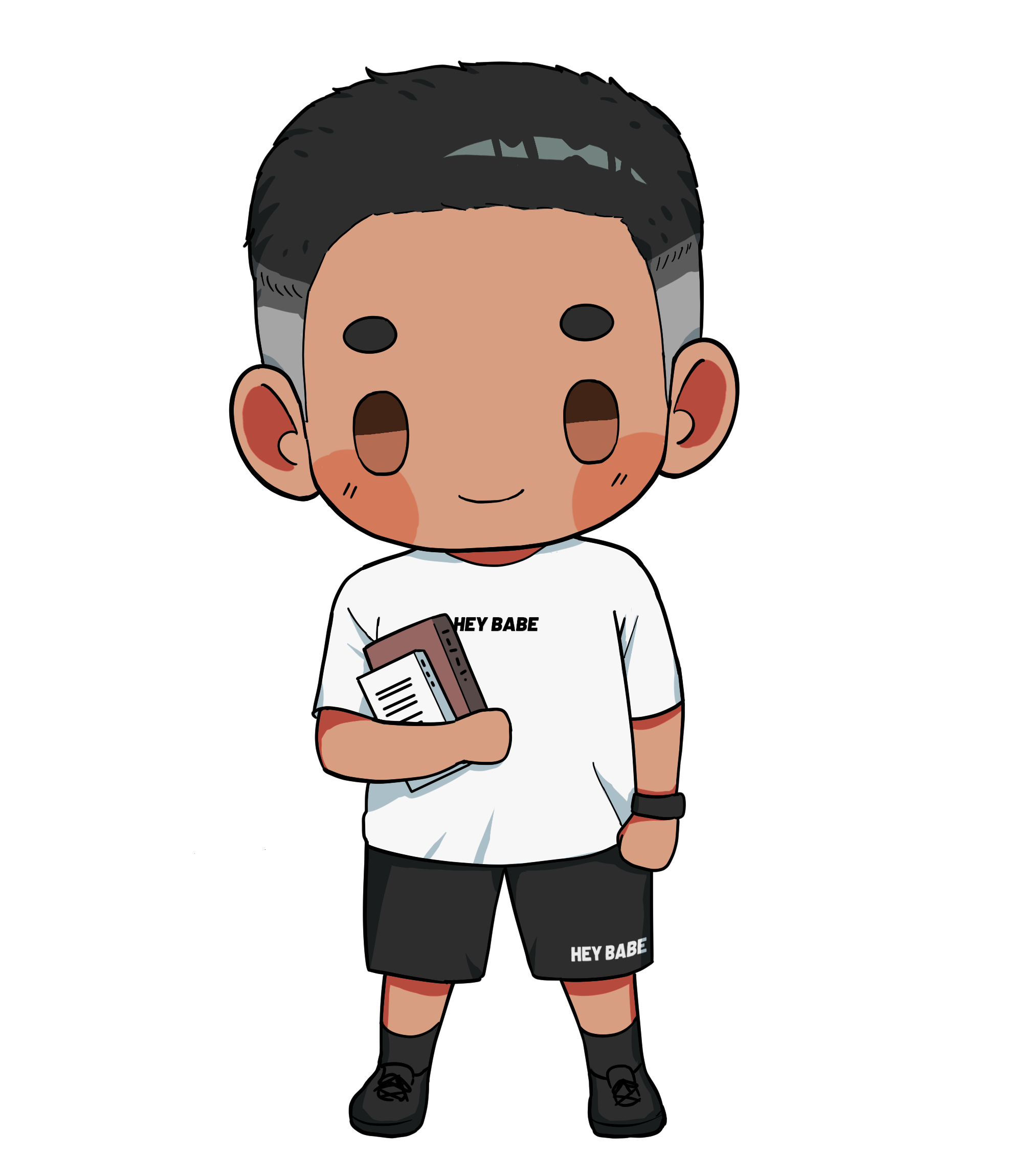📖 Deep Work by Cal Newport
Topic: Productivity | Rating: 4/5

Summary
This book defines deep work, why it is valuable and how to put it into practice.
Why I read this book
To become more effective with my time. Some people appear to produce more output not because they have more time, but because they know how to focus.
Three keynotes
1. Deep work is rare and valuable 💎
Deep work makes use of your unique talents and creates the most value. You are in a state of flow and the limits of your mental capacity are reached.
“Deep Work: Professional activities performed in a state of distraction-free concentration that push your cognitive capabilities to their limit. These efforts create new value, improve your skill, and are hard to replicate.” (Newport 2016, p.3)
2. Busyness is not a proxy for productivity 👨💻
Sometimes we find ourselves at the end of the day feeling like we haven’t accomplished much. Low resistance tasks are easier, but less value is created. So, focus on important tasks, because the real indicator of productivity is quality output, not the number of hours spent behind a computer.
“High-Quality Work Produced = (Time Spent) * (Intensity of Focus)” (Newport 2016, p.40)
3. Ritualise deep work 🕯️
Prioritising deep work is difficult in a world where everything seems to demand your attention. So, protect your time, ritualise the process and change your environment to increase its importance.
“[Great creative minds] think like artists but work like accountants… Build rituals of the same level of strictness and idiosyncrasy as the important thinkers.” (Newport 2016, p.119)
Thoughts/reflection
Before reading this book I had a process of working on important tasks or “deep work”. So, reading this book helped reinforce the ‘why’. I typically wake up at 5 AM every day and aim to get most of my important work done by midday. In the morning I am fresh and produce the most output per hour. I try to make sure I’m not distracted during this time. And in a perfect world, there are no meetings, no phone, no emails no social media etc. After midday, I will work on easier tasks or “shallow work”.
Being a workaholic, I often worked in the evenings. I acknowledge that I was productive because there were no distractions. But if it pushed into my bedtime, my sacred morning productivity would be comprised, so it is important for me to respect this limitation.
Also,
On average it takes 23 minutes to refocus after a distraction (I can’t remember where I learnt this statistic, probably a podcast but this book reminded me of it).
Also,
For another great book on productivity book, I recommend Getting things Done by David Allen. I read it about 2 years ago, and it's one I'd read again.



